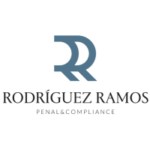-
What is the legal framework (legislation/regulations) governing bribery and corruption in your jurisdiction?
Bribery and corruption in China are governed by authorities in accordance with various laws and legislation. The legal framework could be stratified, by and large, into three levels depending on the severity and identity of the involved individuals. Firstly, there are the laws and regulations under civil, administrative, and economic spheres, such as the Anti-Unfair Competition Law and the Provisional Regulations on the Prohibition of Commercial Bribery, which are the foundations for the wide-spread administrative enforcement against commercial bribery in China. Secondly, there is the Criminal Law and its corresponding legislative and judicial interpretations, which regulate the criminal violations and liabilities. Furthermore, it is worth noting that the Supervision Law, which came into force on 20 March 2018 with the amendments effective from 1 June 2025, governs the investigation and handling of duty-related violations and crimes involving public officials. In a more general sense, the disciplines and regulations issued by the Central Committee of the Communist Party of China (“CPC”), which are binding to all the CPC members and stricter in setting a much lower threshold for the constitution of the corruption related violations.
-
Which authorities have jurisdiction to investigate and prosecute bribery and corruption in your jurisdiction?
From the criminal law perspective, violations that do not involve public officials that exercise public power are investigated by the Public Security Bureau (“PSB”) and transferred to the prosecution department of the People’s Procuratorate (“Procuratorate”) for prosecution. Criminal violations involving public officials that exercise public power are now investigated by the Supervisory Commission following the Supervision Law, with the prosecution being handled by the Procuratorate. The Supervisory Commission may also exert its discretion to investigate the corresponding bribe-offering parties that are not public officials but involved in criminal violations involving public officials.
From the administrative law perspective, violations regarding bribery and corruption are mostly investigated and penalized by the State Administration for Market Regulation (“SAMR”) and its subsidiary branches.
Also, in accordance with the Supervision Law, the administrative violations involving public officials that exercise public power shall be investigated by the Supervisory Commission. Other industrial governing authorities such as the National Financial Regulatory Administration are empowered with the investigation rights for specific industries, that do not involve public officials that exercise public power. Unless the violation is escalated to criminal level upon investigation, it will not involve any further prosecution steps.
-
How is ‘bribery’ or ‘corruption’ (or any equivalent) defined?
There are different definitions of bribery under the current administrative law and criminal law. Moreover, the connotation and definition of bribery varies from criminal law and administrative law perspectives. From an administrative law perspective, in a broad sense, bribery refers to the act of offering, taking money or goods, or by other means, in violation of the fair competition principle, in order to provide or obtain transaction opportunities or other financial interests.
From a criminal law perspective, there are 11 bribery related crimes stipulated in the Criminal Law, which, generally speaking, forbids the act of offering a bribe to any state functionary and non-state functionary, and receiving such bribe. For example, any state functionary who, by taking advantage of his position, extorts money or property from another person, or illegally accepts another person’s money or goods in return for securing benefits for the person, would be guilty of accepting bribes.
-
Does the law distinguish between bribery of a public official and bribery of private persons? If so, how is 'public official' defined? Is a distinction made between a public official and a foreign public official? Are there different definitions for bribery of a public official and bribery of a private person?
Yes. The law distinguishes between the bribery of a public official and that of private persons. There is a specific term for public official in China, which is “state functionary”, which refers to anyone who performs public service in state organs, state-owned enterprises and institutions, and the other persons who perform public service according to law. The Criminal Law clearly distinguishes between state functionaries and foreign public officials, offering bribes to whom constitutes different criminal charges with different penalties. Offering bribes to a state functionary could be subject to up to life imprisonment, and a fine or confiscation of property, while offering bribes to foreign public officials could be subject to up to 10 years in prison and a fine. The Criminal Law sets up a clear division between the bribery of a state functionary and the bribery of a private person, and also provides for different crimes depending on the involvement of the duty, or influence of the state functionary. For example, offering bribes to an executive in a private entity would be convicted of the crime of offering bribes to a non-state functionary, and subject to criminal liabilities ranging from criminal detention to imprisonment of up to 10 years, with a monetary penalty when the involved amount is huge, differing from criminal penalties for the crime of offering bribes to a state functionary.
-
Who may be held liable for bribery? Only individuals, or also corporate entities?
On a criminal level, the bribery acts of an employee of a company could be deemed as either an individual crime, or a unit crime, depending on various considerations including the company’s involvement in the bribery act (such as whether it is the company’s decision to conduct the bribery), the possession of the illegal gains, and whether the bribes are offered in the name of the company or the individual employee. If the charge is raised against the individual employee, then the company would not be held accountable for the crime. However, if the charge is against the company as a unit crime, the dual punishment system would then apply, which means that not only would the company be punished by a monetary penalty, but also the responsible persons (eg, the legal representative, and other persons in charge) could be put into criminal detention or imprisonment.
The administrative enforcement differs as there is a default mechanism in place, that the acts of bribery committed by the employee of the company shall be deemed as the conducts of the company, unless it has evidence to prove that such acts of the employee are irrelevant to seeking for transaction opportunities, or competitive advantages for the employer. The Anti-Unfair Competition Law currently in force provides that only the company would be imposed with administrative liabilities, including a fine ranging from RMB 100,000 to 3,000,000, confiscation of illegal gains, and revocation of the business license under serious circumstances. However, it is worth noting that regulations on anti-unfair competition promulgated by certain provinces provide that the bribe acceptor, including units and individuals, shall be held administrative liabilities such as confiscation of illegal gains and a fine.
-
What are the civil consequences of bribery and corruption offences in your jurisdiction?
There is a general article in the Anti-Unfair Competition Law which stipulates that business operators that have caused damages to others, shall bear the civil liabilities without further specifying the details. Unlike other jurisdictions such as the United States where the authorities (eg, the Department of Justice and the Securities and Exchange Commission) would implement the civil penalties on the offenders, civil consequences in China are only resolved through civil disputes, where the aggrieved party of the bribery could bring a lawsuit in court or use other alternative dispute resolution channels. However, China does have a similar mechanism reflected in the administrative penalties imposed by authorities such as the Administration for Market Regulation (“AMR”), which could include a fine ranging from RMB 100,000 to 3,000,000, confiscation of illegal gains, and revocation of business license in serious circumstances. It is worth noting that the draft amendments to the Anti-Unfair Competition Law released for public comment in November 2022, raise the upper limit of fines to RMB 5 million.
-
What are the criminal consequences of bribery and corruption offences in your jurisdiction?
There are eleven different crimes regarding commercial bribery stipulated in the Criminal Law with corresponding criminal penalties for each one.
In summary, the criminal consequences include the punishment of liberty, and property deprivation. For individuals, the consequences include criminal detention or imprisonment, ranging from criminal detention to life-time imprisonment, as well as a fine, or confiscation of property. Similarly, for unit crimes, a fine would be charged against the entity itself, and the responsible person(s) of the entity would be put into criminal detention or imprisonment.
-
Does the law place any restrictions on hospitality, travel and/or entertainment expenses? Are there specific regulations restricting such expenses for foreign public officials? Are there specific monetary limits for such expenses?
There are no specific restrictions nor monetary limits on hospitality, travel and entertainment expenses provided in law. However, it is highly likely that such expenses would be considered as bribery if they exceed a reasonable amount, or involve extravagant non-business-related activities, and therefore, subject to restrictions that would vary by multiple factors such as type of industry and different cities.
A good frame of reference comes from the standards regarding travel, accommodation, and meeting expenses regulating public officials published by the Central Committee of the CPC, ministries of the State Council of the PRC and local governments. For instance, the accommodation fee for a public official at ministerial level (eg. mayor of Shanghai) in large cities like Beijing and Shanghai is around RMB 1,100 per day. In addition, industrial organizations such as China Association of Enterprise with Foreign Investment R&D-Based Pharmaceutical Association Committee (“RDPAC”) also formulate certain restrictions that are applicable to its members. It is noteworthy that in January 2025, SAMR issued a non-binding compliance guidance for marketing participants in healthcare industry, which is expected to serve as an important reference in future law enforcement actions. The guidance also sets out requirements and recommendations regarding providing hospitality.
Likewise, as for hospitality, travel and entertainment expenses for foreign public officials, no specific restrictions other than the prohibition against bribery to foreign public officials is clearly laid out. It is worth mentioning that the crime of offering bribes to foreign public official was amended into the Criminal Law in 2011, which regulates the act of offering financial interests to foreign public officials or officials in international public organizations. The criminal liabilities include criminal detention or fixed term imprisonment of up to ten years, along with the monetary penalty. Similar considerations on the nature, amount, and necessity of such expenses would be analysed for bribery related risks.
-
Are political contributions regulated? If so, please provide details.
Political contributions are not applicable under China’s legal and political system.
-
Are facilitation payments prohibited or regulated? If not, what is the general approach to such payments?
There is no official definition for facilitation payments in China. Any payment that is made in exchange for illegal business opportunities, advantages or other interests could be potentially deemed as bribery. One relevant exception is in regards to small advertising gifts that are permitted by the Provisional Regulations on the Prohibition of Commercial Bribery.
-
Are there any defences available to the bribery and corruption offences in your jurisdiction?
In a commercial context, the criteria commonly used by the administrative enforcement authorities for substantiating commercial bribery mainly focus on (1) the existence of inducement for illegitimate interests, and (2) the purpose of obtaining business opportunities or competitive advantages. The key for differentiating legitimate interests exchange and inducement for illegitimate interests lies in whether the interests exchanged have potential influence on the fair competition in the market, or the interest and benefits of the consumers. Notably, the Anti-Unfair Competition Law currently in force adopts the method of listing all the possible scenarios of the statutory bribery-receiving parties since it was amended in 2017, including; (1) “any employee of the counterparty to a transaction”, (2) “any entity or individual entrusted by the counterparty to a transaction to handle relevant affairs”, and 3) “any entity or individual that is likely to take advantage of powers or influence to affect a transaction”, and that in its literal meaning excludes the counterparty itself as the bribery-receiving party. However, the draft amendments to the Anti-unfair Competition Law released in 2022 for public comment provide that the counterparty itself would also be included as a potential bribery-receiving party.
Therefore, considering the abovementioned, the corresponding defences for the company could be composed of the nature of the bribery-receiving party, the non-existence of the exchange of illegitimate interests, and the lack of potential influence on the fair competition or consumer’s benefits. In addition, another possible defence for the company could be sustained in the Anti-Unfair Competition Law if a company has evidence to prove that such acts of the employee are irrelevant to seeking transaction opportunities, or competitive advantages for the company, and under the Administrative Penalty Law where a company has evidence to prove that it has no subjective fault.
-
Are compliance programs a mitigating factor to reduce/eliminate liability for bribery and corruption offences in your jurisdiction?
Yes. In accordance with the Anti-Unfair Competition Law, the acts of bribery committed by the employee of a company shall be deemed as the conducts of the company, unless it has evidence to prove that such acts of the employee are irrelevant to seeking for transaction opportunities or competitive advantages for the company. However, no specified regulations or judicial interpretations regarding what evidence would be most valid have been made available. In practice, some multinational and local companies have already implemented compliance projects and preventative measures such as providing regular compliance trainings and requiring employees’ written compliance commitment letters in preparation for any potential legal liability concerns.
Notably, the Shanghai Regulation against Unfair Competition, which was revised in October 2020 explicitly encourages companies to establish compliance programs and requires the supervision authorities to conduct inspection on the implementation status of the compliance programs. Further, it stipulates that no administrative penalty may be imposed on companies if the violation is minor and timely corrected without any harmful consequences.
-
Has the government published any guidance advising how to comply with anti-bribery and corruption laws in your jurisdiction?
At the national level, the State-owned Assets Supervision and Administration Commission of the State Council (“SASAC”), which is the governing authority for all the state-owned enterprises in China has released guidance on compliance management for all the state-owned enterprises governed by the central government, eg. the Measures for Compliance Management of Centrally Governed Enterprises which took effect in October 2022. Although such guidance is mainly applicable to state-owned enterprises governed by the central government, other companies could also use it as major reference for establishing a solid compliance system. A wider range of compliance issues are identified as the key focuses including anti-corruption and bribery, anti-unfair competition and the like. And specific requirements including policy making, establishing risk identification and response systems, compliance review, strengthening accountability, regular compliance trainings, compliance evaluation and continuous improvements are also enumerated in the guidance.
At the regional level, the Shenzhen Standard for Anti-Bribery Management Systems (“Shenzhen Standard”) was published by Shenzhen government as a recommended practice, rather than a compulsory requirement in June 2017. The Shenzhen Standard was drafted based on ISO 37001 Anti-bribery Management Systems, developed by ISO technical committee ISO/TC 309. The recommended elements of an effective corporate compliance program include third party due diligence, internal control (both financially and operationally), standardization on the gift and entertainment rules, anti-bribery control on business partners, effective reporting mechanism, proper investigation and crisis management process, and corrective measures on the identified issues.
At the industrial level, for the pharmaceutical industry, the AMR in several provinces across the country issued guidelines on anti-commercial bribery compliance in 2024. It is worth noting that in January 2025, SAMR promulgated its first anti-bribery guidance for healthcare industry – the Compliance Guidance for Pharmaceutical Companies in Preventing Commercial Bribery Risks (the “Guidance”). The Guidance proposes advice on the establishment of an effective compliance program, and the compliance requirements as well as risk identification and prevention for nine scenarios that inclined to be exposed in bribery risks. Although it is non-compulsory, as the first nationwide anti-bribery guidance for healthcare industry promulgated by SAMR, the key administrative law enforcement authority against commercial bribery, the Guidance is highly likely regarded as a significant reference for AMRs across the country during law enforcements.
-
Are mechanisms such as Deferred Prosecution Agreements (DPAs) or Non-Prosecution Agreements (NPAs) available for bribery and corruption offences in your jurisdiction?
This is not applicable in China.
-
Does the law in your jurisdiction provide protection to whistle-blowers? Do the authorities in your jurisdiction offer any incentives or rewards to whistle-blowers?
Yes. The right to report crimes and other legal violations by the citizens is well established in the laws and regulations such as the Constitution, the Criminal Procedure Law and the Anti-Unfair Competition Law. As for the protection on whistle-blowers, some specific rules like the Rules of the Supreme People’s Procuratorate on Protecting the Citizens’ Tip-off Rights have been formulated to provide a comprehensive mechanism from both substantial and procedural levels.
Strict confidentiality is the foundational requirement imposed on the authorities that receive any reporting throughout the handling process. Also, the authorities need to take measures (eg. restraining the physical access of those being reported to the reporter) to ensure the safety of the reporters and their close relatives whenever necessary. Retaliation on the whistle-blowers is entirely forbidden by law, and legal liabilities such as administrative punishment, criminal detention or imprisonment can be imposed.
On 30 July 2021, the State Administration for Market Regulation and the Ministry of Finance jointly issued the Interim Measures for Rewards for Whistle-blower Reports of Major Violations in the Field of Market Regulation (effective since 1 December 2021) to improve the system of rewarding whistle-blowing against major violations in the market regulation field, which establishes a three-tiered reward system for whistle-blowing, with a maximum reward of RMB 1 million per case.
-
Does the law in your jurisdiction enable individual wrongdoers to reach agreement with prosecutors to provide evidence/information to assist an investigation or prosecution, in return for e.g. immunity or a reduced sentence?
Article 67 of the Criminal Law generally encourages self-reporting of criminal activity by stipulating that criminal penalties may be mitigated or even exempted in cases of voluntary confession. Similar principles and approaches can also be found in other provisions of the Criminal Law. For instance, Article 164 provides that a briber who voluntarily confesses to bribery prior to prosecution may be given a mitigated punishment or may be exempted from punishment.
In the context of administrative cases, Article 32 of the Administrative Penalty Law provides that a party who eliminates or mitigates the harmful consequences of the illegal behavior, was coerced or deceived into committing illegal acts, voluntarily confesses to the illegal behavior, or has rendered meritorious service, may be given a mitigated punishment or may be exempted from punishment.
-
How common are government authority investigations into allegations of bribery? How effective are they in leading to prosecutions of individuals and corporates?
Government authority investigations frequently take place regarding the allegations of bribery.
In terms of administrative enforcement, according to the written decisions of administrative penalties published by the AMR in Shanghai , from 2016 to 2019, more than 400 entities in Shanghai were penalized for commercial bribery with the monetary penalties adding up to RMB 263 million in total, including confiscation of illegal gains and fines imposed. From 2020 to 2022, the AMR in Shanghai issued 190 penalties for commercial bribery, with the total monetary penalties adding up to nearly RMB 70 million. Since 2023, Shanghai local AMRs have continued to actively investigate the commercial bribery cases though the relevant enforcement statistics have yet to be fully published.In terms of criminal enforcement, according to the Work Report of the Supreme People’s Procuratorate released in 2023, 2024 and 2025, more than 78,000 state functionaries were investigated and prosecuted for the bribe-taking and corruption-related issues, and more than 14,000 people were investigated and prosecuted for offering bribes from 2017 to 2022. From 2023 to 2024, procuratorates at all levels focused on both bribe-taking and bribe-offering misconducts and prosecuted 5,661 people for crimes involving offering bribes. Although the government authorities did not publish the statistics respectively for bribery conducted by individuals or corporates in recent years, the number of published indictments still indicates the effective connection between investigation and prosecution, and the intensive enforcement against bribery-related criminal violations.
-
What are the recent and emerging trends in investigations and enforcement in your jurisdiction?
The CPC is building on the overwhelming momentum and keeping up the pressure and the enforcement intensity on anti-corruption and bribery. The overall goal is to improve the system of disabling corruption and bribery, to create an influential atmosphere and to demonstrate the government’s determination to eradicate corruption and bribery. Anti-corruption, as is reiterated by China’s top leadership that China has zero tolerance for corruption, will continuously be a key enforcement area.
From a structural perspective, the supervisory system reform is among the latest enforcement trend to rein in corruption, as a representative example for improving the mechanism and integrating the resources for anti-corruption and bribery.
As for the enforcement scope, the focus has been extended from bribery taking, to cover both bribery taking and offering acts, strengthing the investigation and punishment of bribe-offering. The targets will involve more “seeming outliers” such as the friends or relatives of the state functionaries, or people with a connection to the counterparty of the transaction.
In terms of an industrial perspective, the health care industry remains one of the authority’s primary focuses, with commercial bribery being one of the most common investigations taking place at the moment. So far a series of policies and working plans have been issued by various authorities including the State Council, the National Health Commission, the SAMR, the Ministry of Public Security, National Audit Office, SASAC, National Medical Products Administration, National Supervisory Commission and Central Commission for Discipline Inspection of the Communist Party of China, etc., announcing joint enforcement actions against commercial bribery in healthcare industry. Other industries such as automobile, fast moving consumer goods, telecommunications, energy, infrastructure construction, and financial industries are also among the target list of the recent enforcement trend.
In addition, the Chinese government has also attached great importance to the international cooperation on cracking down on bribery and corruption. This is done through continuous efforts, such as the active participation in the internationally joint enforcement programs and facilitating the establishment of the APEC Network of Anti-Corruption Authorities and Law Enforcement Agencies.
-
Is there a process of judicial review for challenging government authority action and decisions? If so, please describe the key features of this process and remedy.
Strictly speaking, there is no process of “judicial review” in the PRC jurisdiction. However, similar alternative options regarding administrative enforcement include applying for administrative reconsideration and filing administrative litigations against the administrative act conducted by the enforcement agency, such as the penalties issued by the AMR on commercial bribery. The applicant may choose to apply to the people’s government at the same level, or to the competent department at a higher level, for administrative reconsideration. If the applicant refuses to accept the decision made after administrative reconsideration, an administrative lawsuit could be filed accordingly. Litigation might also be directly initiated, without the application for administrative reconsideration.
For criminal judgements, appealing to the higher court for judgements that have not yet taken effect can be made. As for the effective judgements, the individuals or entities may file petitions to the court or the Procuratorate. The court or the Procuratorate will then review the petitions and decide whether a retrial or a counterappeal could be initiated.
-
Have there been any significant developments or reforms in this area in your jurisdiction over the past 12 months?
From a legislative perspective, on December 25, 2024, the Standing Committee of the 14th National People’s Congress passed a decision to revise the Supervision Law. The revised law will officially come into effect on June 1, 2025. This revision is tailored to address the evolving landscape of the anti-corruption campaign and the practical needs of supervision efforts. It focuses on enhancing supervisory measures, procedural standards, and mechanisms for oversight of power. Additionally, it extends the scope of anti-corruption efforts to the international arena, proposing new initiatives such as joint investigations to strengthen international cooperation in combating corruption.
From an enforcement perspective, starting from May 2023, a collaborative effort involving 14 ministries and administrations has been initiated based on the “Key Points for Crack-down on Malpractice in the Pharmaceutical Purchasing and Sales and Medical Services in 2023”. This concerted action aims to address misconduct and irregularities prevalent in the medical product industry. Building upon this foundation, in July 2023, 10 ministries/administrations announced their intentions to launch a year-long nationwide campaign dedicated to combating corruption within the industry.
This campaign is set to receive guidance and support from the Central Commission for Discipline Inspection of the Communist Party of China and the National Commission of Supervision. Emphasizing a comprehensive approach, the CCDI and the NCS have underscored the significance of conducting thorough and systematic oversight across “all aspects, the entire value chain, and achieving full coverage in this sector”. This signifies a resolute commitment to ensuring integrity and accountability throughout the healthcare sector. In May 2024, “Key Points for Crack-down on Malpractice in the Pharmaceutical Purchasing and Sales and Medical Services in 2024” was released, aiming to consolidate, deepen and expand the results of the nationwide campaign to combat corruption in the healthcare sector. The nationwide campaign against corruption is still ongoing.
On January 14, 2025, the SAMR promulgated the Compliance Guidance for the Pharmaceutical Companies in Preventing Commercial Bribery Risks (the “Guidance”), aiming to address the practical needs of market players in the healthcare industry while endeavoring to provide practical and constructive compliance guidelines to motivate these market players to optimize compliance management and mitigate commercial bribery risks. Please refer to the question No. 13 for more details.
-
Are there any planned or potential developments or reforms of bribery and anti-corruption laws in your jurisdiction?
On December 25, 2024, the official website of the National People’s Congress of the PRC (NPC) promulgated the draft amendments to the AUCL. Major amendments related to commercial bribery include (1) retain the scope of bribe-receiving party specified in the current effective AUCL, ie., excluding the transaction counterparty from the scope of briber-receiving party; (2) increase the maximum fine for commercial bribery from RMB 3 million to RMB 5 million; (3) add the penalties for bribery receiving parties; and (4) add the penalties for the responsible persons of the business operators engaging in bribe-offering, including the legal representative, key employees in charge and employees directly responsible for the bribe-offering.
-
To which international anti-corruption conventions is your country party?
The Chinese government signed the United Nations Convention Against Transnational Organized Crime (“Convention”) in December 2000, which came into force in China on October 13, 2003. Although this Convention is a generally applicable to all transnational organization crimes, corruption is one of its primary focuses, which requires the contracting states to take measures through legislation and law enforcement to promote anti-corruption.
Later, China was actively involved in the formation stage of the United Nations Convention against Corruption (“Anti-Corruption Convention”), and was among the first countries to ratify it, with one reservation on the paragraph 2 of Article 66 regarding dispute settlement channel, and it officially took effect in China on February 12, 2006. The Anti-Corruption Convention is the only legally binding universal anti-corruption instrument with the framework established on 5 pillars which are Preventive Measures, Criminalization and Law Enforcement, International Cooperation, Asset Recovery, and Technical Assistance & Information Exchange. At the end of 2016, 10 years after China’s ratification of the Anti-Corruption Convention, a status review report on China’s implementation of the Anti-Corruption Convention was published by the United Nations Office on Drugs and Crime, in which China’s efforts and dedication in anti-corruption through active law enforcement, successive international cooperation and sustainable good practices have been well recognized.
-
Do you have a concept of legal privilege in your jurisdiction which applies to lawyer-led investigations? If so, please provide details on the extent of that protection. Does it cover internal investigations carried out by in-house counsel?
In China, although there is not an equivalent regime of legal privilege which prevents the confidential communications between the client and the lawyer being disclosed to third parties, there is a general duty of confidentiality stipulated in the Law on Lawyers, which is imposed on lawyers to keep confidential any state secrets, trade secrets, and privacy obtained in the course of practicing law. The Criminal Procedure Law further provides the defence attorney with the right to refuse to disclose the relevant information of the client in criminal investigations and proceedings, however this is subject to a few exceptions where national security, public security, or individual’s personal security are endangered. However, for the administrative enforcement, no such protection is legally validated if the lawyer is requested by the authorities to disclose certain information pertinent to the client.
Please note that the above communication confidentiality under PRC laws only applies to PRC-licensed lawyers, and in-house legal counsels or foreign-licensed lawyers are not within the protected scope. Therefore, for investigations led by in-house legal counsels or foreign-licensed lawyers without involvement of PRC-licensed lawyers, neither legal privilege or communication confidentiality would be applicable in China, especially under the circumstance confronting Chinese authorities.
-
How much importance does your government place on tackling bribery and corruption? How do you think your jurisdiction’s approach to anti-bribery and corruption compares on an international scale?
China has attached great importance to tackling bribery and corruption. Under the global context of combating bribery and corruption China has kept pace on an international scale and progressed by leaps and bounds over the past few years. The top-down revolution, which involved the promulgation and amendment of foundational legislations, the restructuring of enforcement authorities, the establishment of Supervisory Commission, the integration of anti-corruption resources, as well as the intensive enforcement actions from both administrative and criminal level, has vividly demonstrated the determination of the Chinese government in handling any lingering issues. In addition, the dedication in international cooperation has impelled the development of a transnational consensus on anti-bribery and anti-corruption. In 2018 alone, China has signed Extradition Treaties and Mutual Legal Assistance Treaties on Criminal Matters with 16 countries. And the enactment of the International Criminal Judicial Assistance Law in 2018 further establishes the fundamental framework of international cooperation on criminal justice, which clarifies the required process for China to raise requests to or accept requests from foreign judicial counterparties regarding criminal judicial assistance. By the end of 2023, China had signed bilateral judicial assistance treaties with 86 countries and treaties on the transfer of sentenced persons with 17 countries; on average, more than 300 requests for international judicial assistance in criminal matters are handled each year.
For example, in 2020, China raised 6 requests for extradition and judicial assistance in criminal cases and 32 requests for law enforcement cooperation and accepted 10 requests for judicial assistance in criminal cases and 15 requests for law enforcement cooperation from foreign parties. According to the information released by the Supreme People’s Procuratorate in 2023, between 2018 and 2023, 885 criminal judicial assistance cases have been handled. And it is reported that during the “Skynet 2024”, 1,597 fugitives were successfully repatriated and 18.28 billion yuan in stolen assets was recovered.
-
Generally, how serious are corporate organisations in your country about preventing bribery and corruption?
The prevention of bribery and corruption has been a very significant working step, running throughout the continuous efforts taken by China. It has been explicitly stated by President Xi Jinping that China is on the progress of establishing a safeguard mechanism in preventing corruption and bribery, by building up the deterrent against corruption, disabling the opportunities for corruption, and increasing the cost of corruption. This is also reflected in the latest legislation and enforcement trend of the Chinese government.
The Ninth Amendment to the Criminal Law extends the scope of bribery taking parties and increases the severity of punishment for bribery and corruption related cases. And the Eleventh Amendment to the Criminal Law increases the severity of punishment for bribery taking by non-state functionaries. The Amendment XII to the Criminal Law introduces seven aggravating circumstances for the offence of offering a bribe, resulting in directly responsible person and other persons directly liable for the relevant unit offences potentially facing harsher criminal penalties. The supervisory commissions at the national, provincial, and county levels have been established to ensure that supervision covers everyone who exercises public power. All these aforementioned instruments are expected to contribute to preventing bribery and corruption.
From another perspective, corporate organizations are mandated to establish compliance programs to prevent bribery and corruption, as stipulated by various regulations and guidelines across different levels and industries. As mentioned above, failure to prevent bribery and corruption is not a standalone offense but can result in the organization being unable to defend against allegations of intent to commit bribery.
-
What are the biggest challenges businesses face when investigating bribery and corruption issues?
Firstly, in comparison to enforcement agencies, businesses face more restrictions and limitations when it comes to collecting evidence. When there is a lack of sufficient evidence to support the claims, businesses often rely on the voluntary cooperation of employees, business partners, and other relevant parties during investigations. However, obtaining their cooperation can be challenging, particularly due to potential legal implications.
Secondly, since bribery transactions often occur through personal accounts, it can be difficult to obtain direct evidence of the flow of transactions. In such cases, businesses often depend on other corroborating evidence or seek support from enforcement agencies.
Thirdly, since bribery and corruption issues can involve both corporate and individual crimes, it is crucial to carefully investigate and analyse the legal liabilities of different parties. Determining appropriate responses and subsequent actions, particularly when attributing liabilities to companies, becomes vital.
Additionally, certain industries with a high risk of corruption are prone to various evolving bribery schemes. Regular assessments of potential risks should be conducted within these industries.
Therefore, it is essential for businesses to have investigation teams and external support with extensive experience in dealing with bribery and corruption issues and a high level of expertise.
-
What are the biggest challenges enforcement agencies/regulators face when investigating and prosecuting cases of bribery and corruption in your jurisdiction? How have they sought to tackle these challenges? What do you consider will be their areas of focus/priority in the next 18 months?
The biggest challenges facing the enforcement agencies in investigating and prosecuting cases of bribery and corruption, mostly come from the difficulties in evidence collection and consolidation, which is aggravated by the developments of economy and technology. The characteristics of the bribery related cases include the concealment of the misconducts per se, and the collusion among the involved parties. Dynamic business models in different industries and the adoption of high-end technologies require a better understanding and in-depth knowledge from the enforcement authorities in investigation and prosecution. For example, instead of going directly through the bribery offering party, improper payments in the form of bitcoin could be transferred to the bribery taking party through a non-related third party based in other countries, and in the name of the legitimate business purpose. Under the circumstances where physical evidence is not solid, the alignment among the involved parties in non-cooperation with the authorities will increase the difficulty in further conviction. Additionally, if the cases involve extra-territorial factors such as foreign entities, then cooperation from the authorities in other jurisdictions will be needed, for which the process is usually time-consuming, whilst the investigation itself is time-sensitive.
-
How have authorities in your jurisdiction sought to address the challenges presented by the significant increase of electronic data in either investigations or prosecutions into bribery and corruption offences?
Authorities in our jurisdiction have responded to the surge in electronic data in investigations and prosecutions of bribery and corruption offences through various measures. In July 2017, initiatives like the Smart Court, emphasizing the integration of judicial system reform with modern technology, were introduced, enabling judicial big data analysis to manage the escalating electronic data volume. Additionally, on May 25, 2022, the Supreme People’s Court released the “Opinions on Strengthening the Judicial Application of Blockchain,” advocating for an Internet judicial blockchain verification platform to authenticate judicial data, aiding in detecting false evidence. Moreover, the December 9, 2022, issuance of the “Opinions on Regulating and Strengthening the Judicial Application of Artificial Intelligence (AI)” further addressed the challenge by promoting AI-assisted tasks to alleviate the workload of judicial personnel and enhance overall efficiency. Since 2021, the Central Commission for Discipline Inspection (CCDI) of the CPC and the National Supervisory Commission have continuously emphasized the establishment and enhancement of the Bribe-Giver Blacklist, a nationwide database that records individuals and entities involved in bribery. Leveraging advanced information technologies such as big data and artificial intelligence, relevant penalty information of those listed will be shared via the National Public Credit Information Platform and transmitted to relevant authorities for coordinated punitive actions. The fourth plenary session convened by the CCDI in 2025 further called for the refinement of the joint penalty mechanism targeting key bribe-givers.
-
What do you consider will be the most significant bribery and corruption-related challenges posed to businesses in your jurisdiction over the next 18 months?
In view of the continuous implementation of the national policy of launching the joint investigation on both acts of offering and taking bribes, more stringent enforcement actions on anti-corruption taken by the supervisory commissions at all levels against cases related to public officials that exercise public power, companies need to take a relatively conservative approach to scrutinize the business practices to reduce potential risks with this regard. Considering that employees’ corruptive misconduct could lead to the criminal liabilities to both the individual and the entity, it is necessary for companies to plan ahead in compliance enhancement to prove their conscientiousness and their continuous efforts in duty execution.
Another delicate issue for companies to consider is with regards to potential legal implications of the International Criminal Judicial Assistance Law (“ICJAL”), which was promulgated by the Standing Committee of the National People’s Congress of China on October 26, 2018. Companies in China commonly conducts internal investigations on corruption for foreign law considerations such as the Foreign Corrupt Practices Act (“FCPA”), but now this practice is substantially impacted by the ICJAL issued in October 2018, which expressly stipulates that institutions, organizations and individuals within the territory of China shall not provide evidence materials and assistance provided in this law to foreign countries, without the consent of the competent authority of China. The ICJAL applies to criminal proceedings with a wide coverage of activities potentially deemed assistance thereto. Upon analysis of different types of FCPA investigations in China, it is our view that as long as the investigation could potentially lead to a criminal resolution with the US authorities, it is within the zone of danger and the likelihood of the applicability of the ICJAL on the current FCPA investigations is substantially high with legal implications to be ascertained. In April 2024, seven departments, including the National Supervisory Commission, the Supreme People’s Court, and the Supreme People’s Procuratorate, jointly issued specific regulations to implement the ICJAL, mandating to establish a working mechanism under the State Council to review the application for the cross-border transfer of criminal evidence. Consequently, either directly conducted by the foreign authorities, or collaterally through instructing companies in China to collect evidence through internal investigation, any provision of criminal evidence or related information from entities, organizations, or individuals within China to foreign parties is subject to review and approval by this working mechanism.Restriction on cross-border data transfer is another pitfall of which companies need to be aware. The Cyber Security Law, promulgated in 2016 and took effect in 2017, establishes the basic framework of cybersecurity and data localisation obligations in China. In 2021, the Data Security Law and the Personal Information Protection Law were promulgated and took effect, and so far, the regulations and implementation rules to implement the provisions of the aforementioned laws regarding cross-border transfer have been formulated, further imposing certain controls in this regard, while also detailing the regulatory framework for the cross-border transfer of personal information and important data.
Therefore, it is suggested that companies should consult with competent local counsels in advance to access the legitimacy of the internal investigations and to interact with the relevant Chinese authorities if needed.
-
How would you improve the legal framework and process for preventing, investigating and prosecuting cases of bribery and corruption?
China has completed the initial stage of establishing the legal framework and process for preventing, investigating, and prosecuting bribery and corruption. In order to comply with the relevant laws and regulations, companies should also build up an internal process which covers the ethical standards cultivation, proper delegation of authority, due diligence on business partner selection, internal monitoring and control on the irregular transactions, as well as setting up compliance reporting platform and effective process for internal investigation and crisis management. Special attention is required on the interaction and cooperation under situations whereby a government investigation or inquiry is initiated, companies shall then take responsive actions including the internal investigation and evidence preservation, severity evaluation, proactive communication with the authorities, control of media and public exposure, etc.
China: Bribery & Corruption
This country-specific Q&A provides an overview of Bribery & Corruption laws and regulations applicable in China.
-
What is the legal framework (legislation/regulations) governing bribery and corruption in your jurisdiction?
-
Which authorities have jurisdiction to investigate and prosecute bribery and corruption in your jurisdiction?
-
How is ‘bribery’ or ‘corruption’ (or any equivalent) defined?
-
Does the law distinguish between bribery of a public official and bribery of private persons? If so, how is 'public official' defined? Is a distinction made between a public official and a foreign public official? Are there different definitions for bribery of a public official and bribery of a private person?
-
Who may be held liable for bribery? Only individuals, or also corporate entities?
-
What are the civil consequences of bribery and corruption offences in your jurisdiction?
-
What are the criminal consequences of bribery and corruption offences in your jurisdiction?
-
Does the law place any restrictions on hospitality, travel and/or entertainment expenses? Are there specific regulations restricting such expenses for foreign public officials? Are there specific monetary limits for such expenses?
-
Are political contributions regulated? If so, please provide details.
-
Are facilitation payments prohibited or regulated? If not, what is the general approach to such payments?
-
Are there any defences available to the bribery and corruption offences in your jurisdiction?
-
Are compliance programs a mitigating factor to reduce/eliminate liability for bribery and corruption offences in your jurisdiction?
-
Has the government published any guidance advising how to comply with anti-bribery and corruption laws in your jurisdiction?
-
Are mechanisms such as Deferred Prosecution Agreements (DPAs) or Non-Prosecution Agreements (NPAs) available for bribery and corruption offences in your jurisdiction?
-
Does the law in your jurisdiction provide protection to whistle-blowers? Do the authorities in your jurisdiction offer any incentives or rewards to whistle-blowers?
-
Does the law in your jurisdiction enable individual wrongdoers to reach agreement with prosecutors to provide evidence/information to assist an investigation or prosecution, in return for e.g. immunity or a reduced sentence?
-
How common are government authority investigations into allegations of bribery? How effective are they in leading to prosecutions of individuals and corporates?
-
What are the recent and emerging trends in investigations and enforcement in your jurisdiction?
-
Is there a process of judicial review for challenging government authority action and decisions? If so, please describe the key features of this process and remedy.
-
Have there been any significant developments or reforms in this area in your jurisdiction over the past 12 months?
-
Are there any planned or potential developments or reforms of bribery and anti-corruption laws in your jurisdiction?
-
To which international anti-corruption conventions is your country party?
-
Do you have a concept of legal privilege in your jurisdiction which applies to lawyer-led investigations? If so, please provide details on the extent of that protection. Does it cover internal investigations carried out by in-house counsel?
-
How much importance does your government place on tackling bribery and corruption? How do you think your jurisdiction’s approach to anti-bribery and corruption compares on an international scale?
-
Generally, how serious are corporate organisations in your country about preventing bribery and corruption?
-
What are the biggest challenges businesses face when investigating bribery and corruption issues?
-
What are the biggest challenges enforcement agencies/regulators face when investigating and prosecuting cases of bribery and corruption in your jurisdiction? How have they sought to tackle these challenges? What do you consider will be their areas of focus/priority in the next 18 months?
-
How have authorities in your jurisdiction sought to address the challenges presented by the significant increase of electronic data in either investigations or prosecutions into bribery and corruption offences?
-
What do you consider will be the most significant bribery and corruption-related challenges posed to businesses in your jurisdiction over the next 18 months?
-
How would you improve the legal framework and process for preventing, investigating and prosecuting cases of bribery and corruption?



















